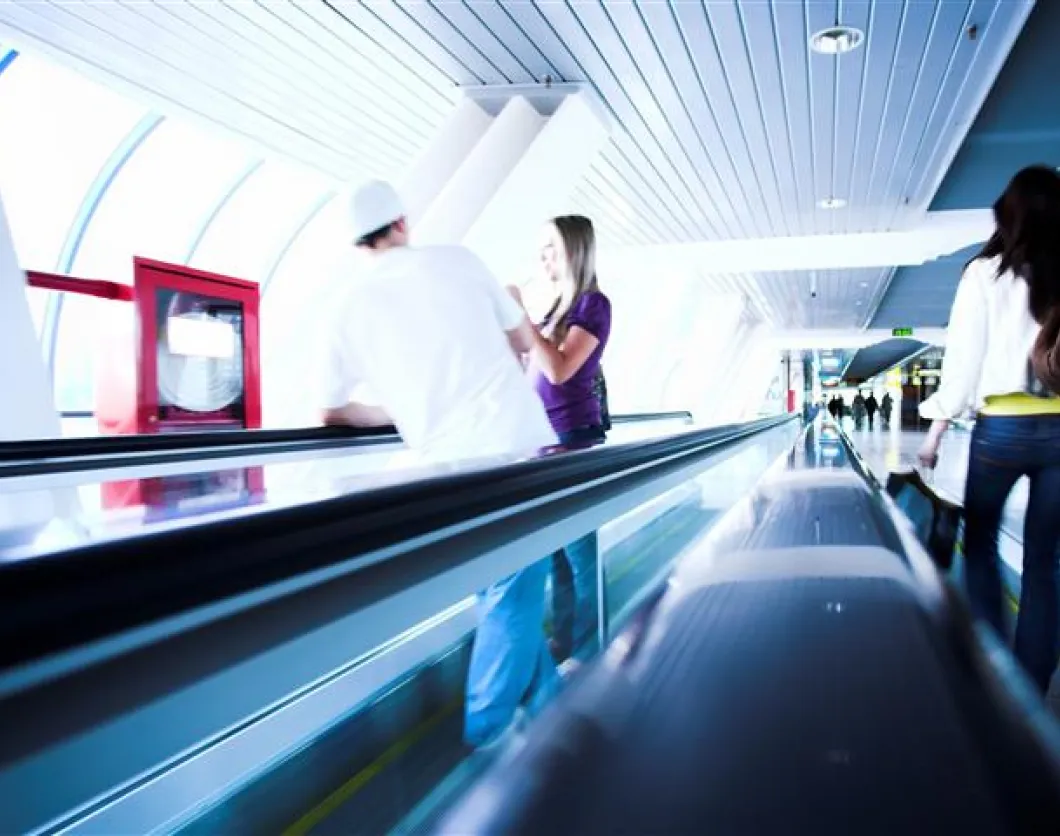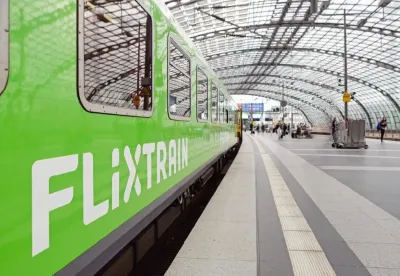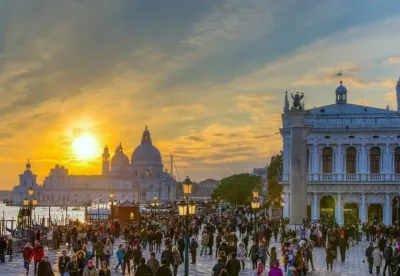A global benchmark survey of leading airport hubs has found that the rates of online booking and web check-in are among the highest in the world at Mumbai International Airport.
The 4th annual SITA/Air Transport World Passenger Self-Service Survey (PSS) found that the preference for online booking was higher (77.9%) among Mumbai passengers than at any of the six international gateways included in this year's survey. The actual usage rate was 65.9% among those interviewed which is above the global average of 63.7% and an increase from 61.7% recorded at Mumbai during last year's survey.
Mumbai also stands out because of the popularity of web check-in which was used by 25.6% of passengers – a rate which was only exceeded by Atlanta, the world's busiest airport, where the rate was 32.2.%. Overall, preference towards self-service check-in continues to grow at Mumbai up from 60% last year to 68.9% this year compared to a global average of 62.9% across the six airports surveyed.
The PSS Survey is an in-depth look at the attitudes and habits of a representative sample of the 232 million passengers who use these six leading international airports: Mumbai International; Sao Paulo Guarulhos, Brazil; Hartsfield-Jackson, Atlanta; Charles de Gaulle, Paris; Moscow Domodedovo; and OR Tambo Airport, Johannesburg. The data is extracted from interviews with 2,193 passengers conducted at the departure gates earlier this year.
The number one reason cited by Mumbai passengers for not using self-service check-in was that they had bags to check-in (45.2%) as many of them did not see the value of self-service check-in options if they had to go to an agent desk to drop off bags. Some also believe that it is not possible or too complicated to use self-service check-in options when there are bags to be checked in.
Maneesh Jaikrishna, SITA Director for India and South Asia, said: "This year's survey found that there was a significant increase in both awareness and availability of self-service check-in for passengers using Mumbai. Awareness of the self-service option is now almost at 80% and continues to grow."
The survey also found that passengers are spending more through airline websites on ancillary services such as hotels and car hire and their numbers are expected to double. In Mumbai, over 40% of passengers use airline websites frequently or intermittently to book hotel rooms or car rental which is well above the 20% average.
{%C3,4%}
Jaikrishna added: "It is also interesting to note that Indian passengers have a very high rate of preference, 68%, for an electronic copy of their boarding pass compared to 23% who prefer the conventional paper boarding pass. This is further evidence that India's air travellers are very open to technological innovation that simplifies the passenger journey."
The number of Mumbai passengers carrying a smartphone has almost doubled to 11.3% from 6.5% in 2008, in line with the global trend. But interestingly, passengers in Mumbai are more inclined to use their mobile phones throughout the travel experience. In Mumbai, 78% said they would use a mobile phone to check-in in the future as against a global average of 45%.
Dwell time at the airport is the step of the journey that passengers interviewed in Mumbai Airport would like to change the most with 59% asking for improved internet access capabilities, over 30% asking for digital assistance to find their way and for shopping.
Passengers flying on more than 100 different airlines and representing over 80 different nationalities were interviewed during April/June 2009 in this independent survey.
The big news for the industry is that the survey completely justifies those airlines who are investing heavily in their web sites and ancillary service offerings. The proportion of passengers buying ancillary services through airline web sites is expected to double in the coming years. In addition, there has been a 20% increase overall in the adoption of self-service facilities which are seen as an essential part of having a pleasant trip and avoiding queues.










